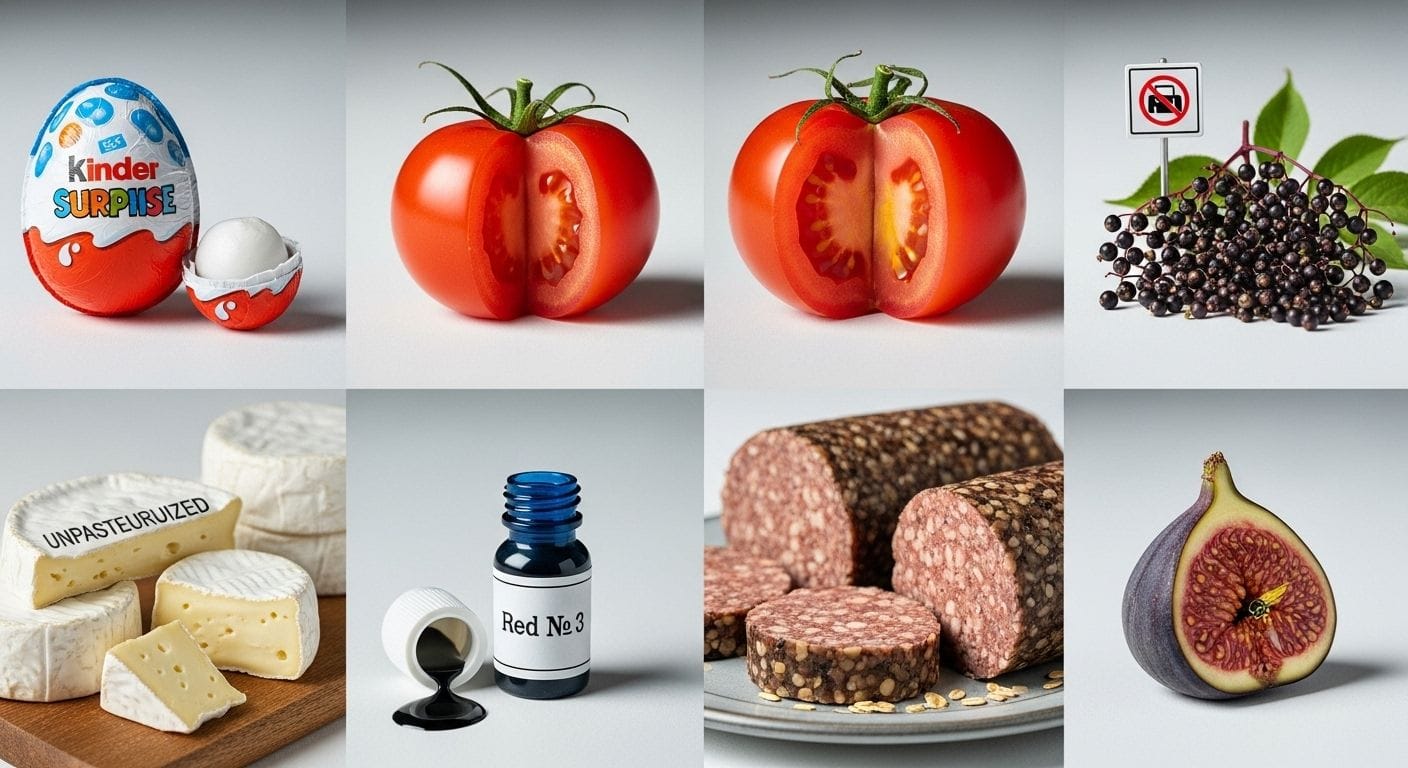7 Foods Banned Abroad (But Perfectly Legal Here)
BY SARAH CHEN • PUBLISHED NOVEMBER 26, 2025 • 8 MIN READ

QUICK TAKE
That box of Skittles, can of Mountain Dew, or package of Ritz crackers in your pantry? Banned in multiple countries. The US and Europe have different approaches to food safety—one requires proof of harm, the other requires proof of safety. Here's what's in your kitchen that other countries won't allow.
The FDA considers these foods safe. The European Union, Japan, and dozens of other countries disagree. The divide comes down to regulatory philosophy: the US generally allows additives unless proven harmful, while many other countries require proof of safety before approval. Neither system is perfect, but the differences are striking.
1. Skittles
he rainbow candy contains titanium dioxide, a whitening agent that makes colors pop. It's also used in paint and sunscreen. The European Union banned it in food products in 2022 after studies suggested it might damage DNA and cause inflammation.
📚 Source
GoodRx Health (2024); Paste Magazine (2023); European Food Safety Authority ruling (2022)
Skittles also contain artificial dyes Yellow 5, Yellow 6, and Red 40. The EU requires warning labels on products with these dyes, noting they "may have an adverse effect on activity and attention in children." Mars, the company that makes Skittles, reformulated the candy for European markets but kept the original recipe for US consumers.
2. Mountain Dew
The neon-yellow soda contains brominated vegetable oil (BVO), a chemical that keeps the citrus flavoring from separating. BVO contains bromine, the same element found in flame retardants.
Japan and the European Union banned it after studies linked bromine accumulation to memory loss, skin problems, and nerve disorders. The FDA still considers it safe in small amounts.
📚 Source
Paste Magazine (2023); Xtalks (2025)
PepsiCo announced in 2020 it would remove BVO from all its drinks, but the process has been slow. You can still find it in some Mountain Dew products.
3. Ritz Crackers
These buttery crackers contain partially hydrogenated oils—the main source of trans fats. Trans fats raise bad cholesterol, lower good cholesterol, and increase the risk of heart disease and stroke.
📚 Source
WTHR Indianapolis (2024); Cheapism (2024)
Switzerland, Austria, Hungary, Iceland, Norway, and Denmark banned them. The FDA technically banned artificial trans fats in 2018, but gave companies until 2021 to comply—and allowed existing products to remain on shelves. Many products still contain partially hydrogenated oils in small amounts.
4. Farm-Raised Salmon
Wild salmon get their pink color from eating shrimp and krill. Farm-raised salmon are gray. To fix this, farmers add astaxanthin, a synthetic pigment, to their feed.
The concern isn't the color itself—it's what else comes with it. Farmed salmon are often given antibiotics and raised in crowded conditions that allow diseases to spread. Studies have found higher levels of contaminants in farmed salmon compared to wild.
📚 Source
Paste Magazine (2023); Boston's ROCK 92.9 (2023)
Australia and New Zealand banned US farm-raised salmon. The US doesn't require labels distinguishing farmed from wild salmon, though some producers label it voluntarily.
5. US Chicken
American chicken is washed in chlorine to kill bacteria like Salmonella. The chlorine itself isn't the main concern—it's what the chlorine wash allows. European regulators argue that if you need to chlorinate chicken, your farming and processing standards aren't good enough to begin with.
📚 Source
Xtalks (2025); Boston's ROCK 92.9 (2023)
The European Union banned US chicken in 1997. They require higher animal welfare standards throughout the production process rather than relying on chemical washes at the end.
6. Coffee-mate
The creamer contains hydrogenated soybean and cottonseed oils—more trans fats. Denmark, Norway, Austria, Hungary, and Switzerland banned it for the same reasons they banned Ritz crackers.
📚 Source
WTHR Indianapolis (2024); Cheapism (2024)
Trans fats are linked to inflammation, insulin resistance, and increased heart disease risk. The American Heart Association recommends consuming as little trans fat as possible.
7. Little Debbie Swiss Rolls
These chocolate snack cakes contain Yellow 5 and Red 40, artificial dyes linked to hyperactivity in children. Norway, Austria, Finland, and parts of the UK banned them.
📚 Source
GoodRx Health (2024); FOX13 Investigation (2024)
The dyes are in thousands of US products—candy, cereals, baked goods, beverages, and even medications. The FDA requires no warnings. The EU requires labels stating the dyes "may have an adverse effect on activity and attention in children."
You don't need to panic about eating these foods occasionally. But knowing what's in them helps you make informed decisions. The gap between US and international food standards isn't about one country being right and another wrong—it's about different approaches to risk. Read labels. Choose products with simpler ingredients when you can. Small changes add up.
